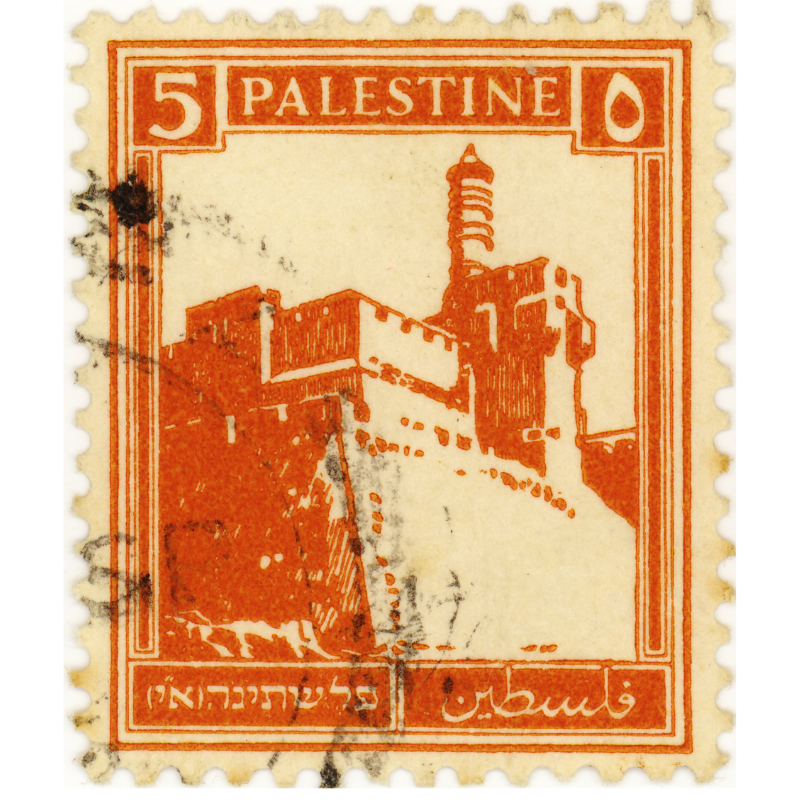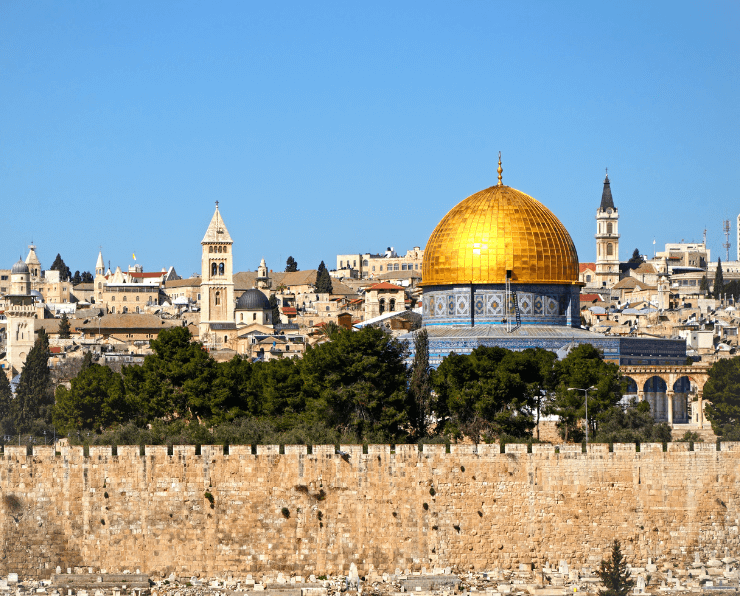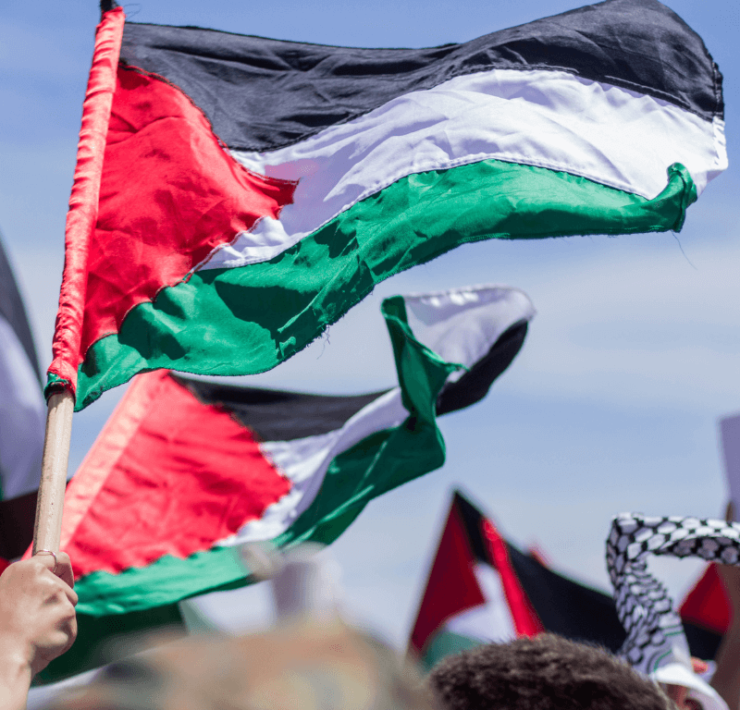If you’ve spent any time on social media recently, you’ve probably noticed a lot of people talking about Palestine. Even major celebrities like Kendall Jenner and Bella Hadid are speaking out about it. But if you’re not well versed in Middle East politics, you might be asking yourself, ‘What’s going on, and why on earth it so controversial?!’
In this post, we’ll break down exactly what’s happening, explain why it’s complicated and why people are angry, and tackle some of the most common questions and misconceptions around the conflict. Buckle up! Here we go…
Why is everybody talking about Palestine?
The current wave of attention began early last week, when videos began to circulate on social media showing Palestinian families being evicted from their homes in the occupied East Jerusalem neighbourhood of Sheikh Jarrah.
Israel-Palestine 101: ‘The Occupied Territories’ refers to the West Bank, East Jerusalem, the Gaza Strip and the Golan Heights. All of these areas legally belong to the Palestinian people, but Israel has forcibly occupied and administered them since 1967.
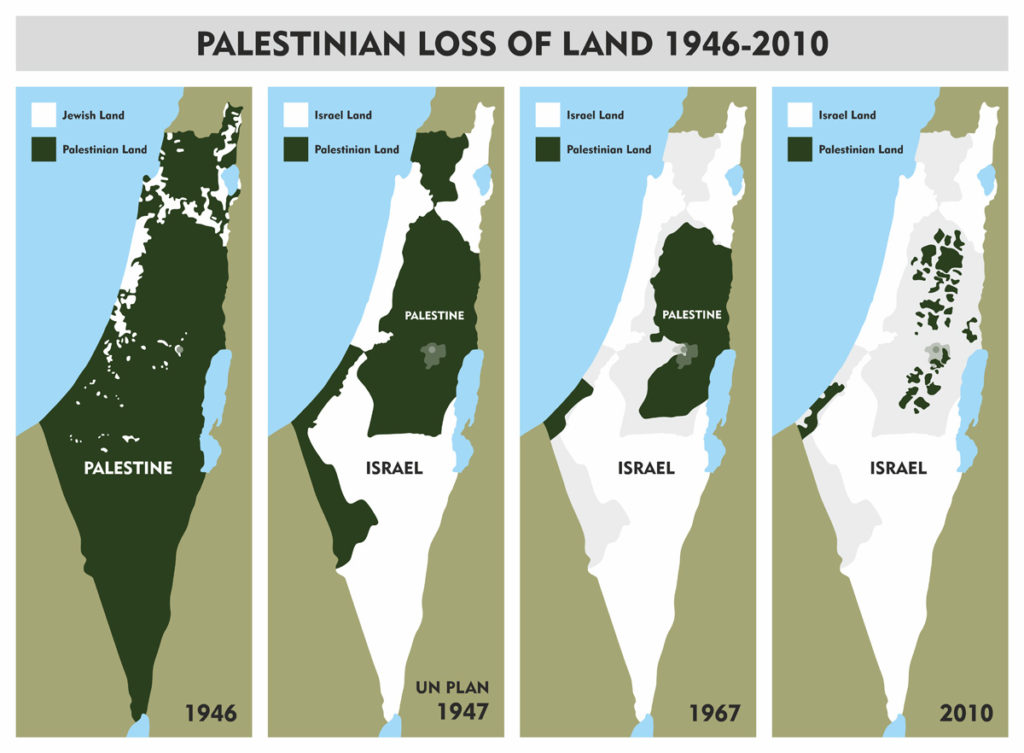
The Sheikh Jarrah neighbourhood was built in the early 20th century by wealthy Palestinians, and in 1956, twenty eight Palestinian families settled there after being expelled from their homes during the Nakba in 1948.
Israel-Palestine 101: The ‘Nakba’ (Arabic for ‘catastrophe’) refers to the forced expulsion of over 700,000 Palestinians from their homes by Zionist militias in 1948, in the towns and cities that became Israel. Zionism is the name given to the Jewish nationalist movement whose goal is the creation and defence of a Jewish national state in Palestine, the ancestral homeland of the Jews. Many Palestinians resettled in other parts of Palestine, while others were forced into refugee camps. There are currently over 7 million Palestinian refugees worldwide, made up of the people displaced by the Nakba and their descendants.
The evictions in Sheikh Jarrah are taking place as a result of lobbying by Israeli settler groups supported by the Israeli government, who claim to have ancestral rights to the land. Settlers have been seizing homes as Israeli police escort the Palestinians living there out of their houses, despite the fact that they have lived there for decades and have documentary evidence of their ownership of the land. One video that went viral showed an Israeli settler saying to a Palestinian woman, “If I don’t steal [your house], someone else will.”
"You are stealing my house."
— AJ+ (@ajplus) May 5, 2021
This is what a Palestinian woman told an Israeli settler, as he tried to take over her family's home in occupied East Jerusalem's Sheikh Jarrah neighborhood. pic.twitter.com/6s3TqHMR1r
The evictions in Sheikh Jarrah are taking place as a result of lobbying by Israeli settler groups supported by the Israeli government, who claim to have ancestral rights to the land. Settlers have been seizing homes as Israeli police escort the Palestinians living there out of their houses, despite the fact that they have lived there for decades and have documentary evidence of their ownership of the land. One video that went viral showed an Israeli settler saying to a Palestinian woman, “If I don’t steal [your house], someone else will.”
Hundreds of Palestinians gathered on the streets of Sheikh Jarrah to protect the families and protest the forced evictions, demonstrating non-violently and breaking their fast together (the events occurred during the last days of the Holy Month of Ramadan, during which Muslims fast from dawn until dusk). The Israeli police entered the neighbourhood to stop the protests, spraying the people with skunk water (a chemically enhanced form of sewage water frequently sprayed at Palestinians and their homes with enormous hoses), violently breaking up the demonstrations and breaking into Palestinian homes in search of the instigators.
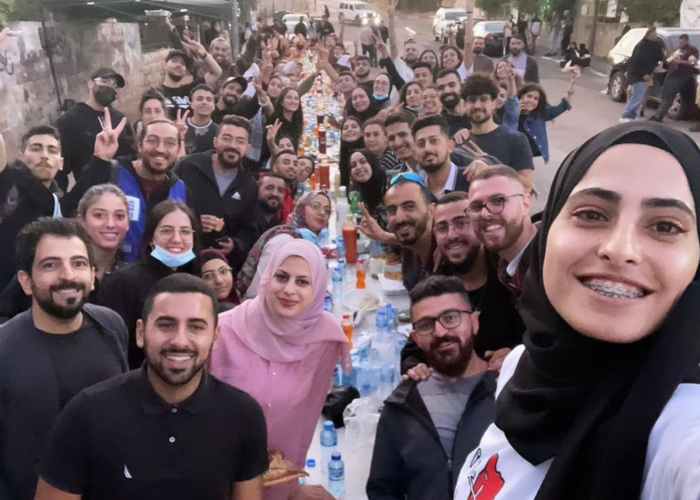
Residents of Sheikh Jarrah, including writer Mohammed el-Kurd, posted videos of the events on social media and accused the Israeli government of attempting to ethnically cleanse the area of Palestinians. Their posts were shared widely on Instagram, but many were removed by the platform which claims they violated community guidelines. This sparked outrage among social media users all over the world, who continued to share the posts and raise awareness of what was happening. Then things escalated…
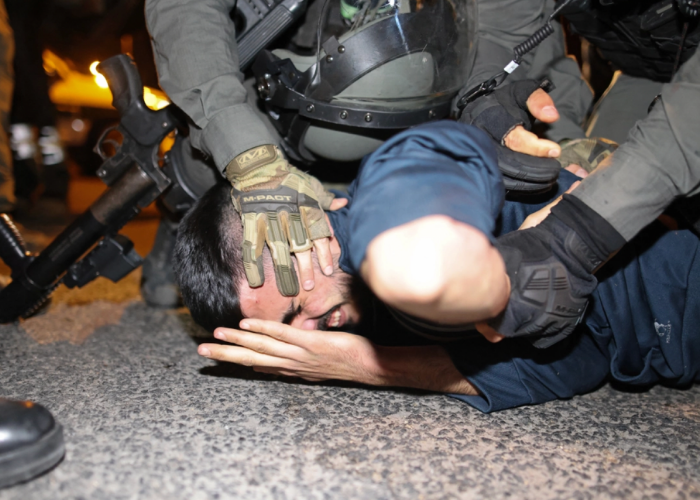
In response to the forced evictions and the brutal treatment of protestors and residents of Sheikh Jarrah, Hamas militants in Gaza fired rockets into Israel, which were intercepted by Israel’s missile defence system. No Israelis were hurt, though many spent a tense night in shelters in response to the attacks.
Israel-Palestine 101: Hamas is a Palestinian Islamist political organisation that has waged war on Israel since its founding in 1987. Its use of violence has led to its designation by many western governments as a terrorist organisation. However, Hamas also provides social services to Palestinians living in Gaza, where it was elected to govern in 2006. This, along with its hard stance against Israel, has kept the organisation at the forefront of Palestinian resistance against the Israeli occupation.
The next day, Israeli police stormed the compound of the Al-Aqsa Mosque in East Jerusalem, where Palestinians were gathering and praying the day before Eid – the biggest celebration in the Islamic calendar which marks the end of Ramadan. The police, armed with guns and full protective gear, shot rubber bullets and threw stun grenades at the Palestinians, barricading worshippers– including women and children – inside the mosque and throwing grenades inside. Stun grenades were also thrown at shoppers in the marketplace around Al-Aqsa and inside the medical tents set up to treat the injured. Palestinians continued to share footage of the attacks on social media, but again, much of that footage was censored and removed.
Israel-Palestine 101: The Al-Aqsa Mosque and the surrounding compound in East Jerusalem is the third holiest site in Islam. Its location near to key Jewish and Christian religious sites mean the Mosque and the land it sits on is highly contested. Because of the illegal Israeli occupation of East Jerusalem, most Palestinians – including many who live just minutes away – are unable to access Al-Aqsa. It has therefore become a symbol of resistance and liberation from occupation for Palestinians and Muslims around the world.
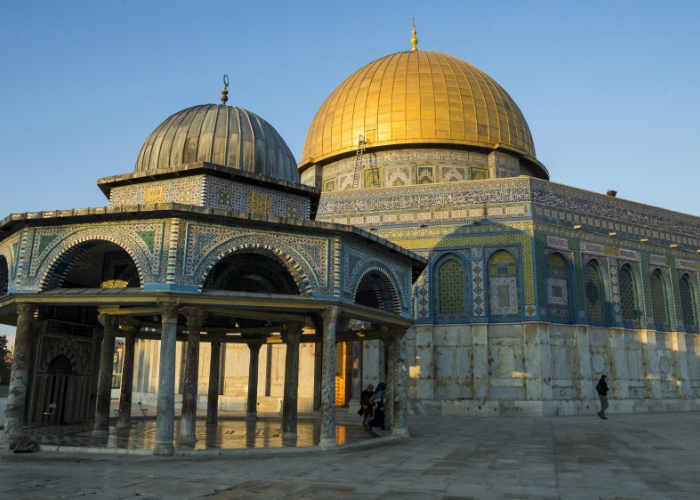
As Palestinian anger escalated, Hamas continued to fire rockets into Israel, which continued to be intercepted. During the days since the Al-Aqsa raid, Israel has repeatedly bombed the Gaza Strip, claiming to be targeting Hamas but levelling entire buildings and apartment blocks in the process including residential buildings and the offices of media outlets. The death count currently stands at almost two hundred people including 39 children, and the bombing continues as of Sunday evening.
Israel-Palestine 101: Gaza is a densely populated strip of land mostly surrounded by Israel that is populated almost exclusively by Palestinians. Israel has imposed a land, air and sea blockade on the Gaza Strip, meaning Palestinians cannot leave and life for residents is extremely difficult and dangerous. Many have referred to Gaza as ‘the world’s largest open air prison’. When Gaza is bombed from the air, there is literally have nowhere to hide.
These two Gazan kids are happy that they were able to rescue their fish after an Israeli bombing destroyed their home in #Gaza . pic.twitter.com/mGehqtFUDI
— Baker Atyani (@atyanibaker) May 15, 2021
But wait – isn’t Israel-Palestine a centuries-old religious conflict?
Actually, no. In fact, before 1948 (just 73 years ago), Muslims, Jews, Christians existed peacefully in Palestine.
The persecution of the Jewish people throughout history – culminating in the horrors of the Holocaust – led to the emergence of the belief that the Jewish people should have their own national homeland. From the end of the 19th century until the mid-20th century, hundreds of thousands of Jews from across Europe migrated to Palestine, which was then controlled by Britain (Britain and France had split up the Middle East at the end of WWI – a highly controversial period of history which sowed the seeds for conflict elsewhere in the region as well).
Arabs in Palestine saw the mass Jewish migration as a European colonial movement and fighting broke out between the them, leading the UN to vote to split the land into two countries. The Jewish settlers accepted the plan, but the Palestinians – supported by a number of Arab states – refused to give up their land. They fought the Israelis and lost, and it was during the course of the conflict that Israel seized land that went far beyond the borders agreed by the UN and the Palestinians living on it were forced to flee.
Only the West Bank, East Jerusalem and the Gaza Strip remained under Palestinian control, though Palestine was never recognised by the international community as a state, which has created significant limitations on the freedom of Palestinians living there. In the subsequent war in 1967, Israel took over control of the West Bank and Gaza, and now the Israeli government controls virtually every aspect of life there. This means they have access to vital natural resources that should belong to Palestinians (including water and agricultural land) and that they are essentially able to use Palestinian land however they want.
Gazans today live under a suffocating blockade, while Palestinians living under Israeli authority in the West Bank face daily struggles and limitations on their freedoms and human rights. Roads are controlled by the Israeli government and Palestinians’ freedom of movement is severely limited. Many endure demoralising treatment at heavily militarised checkpoints in order to travel anywhere, and many are not even allowed to cross into other areas of Palestine at all (remember the Palestinians living next to Al-Aqsa who have never been allowed to visit their mosque?).
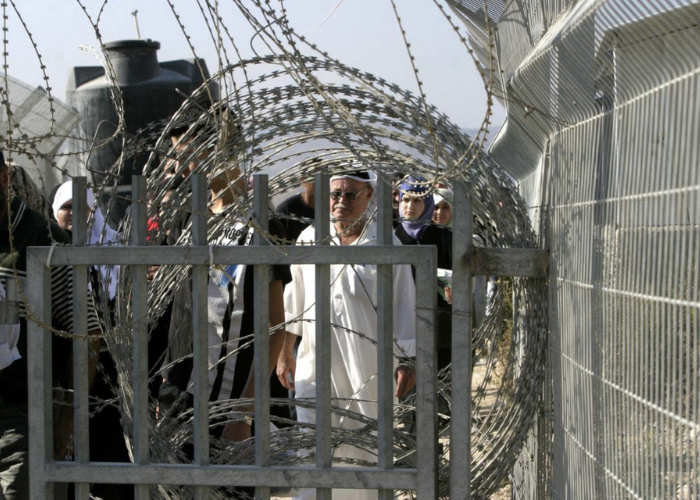
Israel-Palestine 101: Israel has built settlements within the West Bank, confiscating Palestinian territory and subsidising Israeli communities to live there. The more than a hundred settlements are illegal under international law, but this does not stop Israel from continuing to build them. This has become one of the most controversial issues of the conflict and one of the biggest barriers to peace because it shifts the balance of power and territory on the ground.
So although both sides date their claims to the land back thousands of years, the actual ‘Israel-Palestine conflict’ only goes back as far as the 1940s, when the state of Israel was established. In fact, the term ‘conflict’ itself is highly contested, because it assumes a level of symmetry between both sides in terms of their ability to fight. However, Israel has one of the world’s best funded and equipped militaries and Palestine has neither a recognised state nor an army. This is why you will see Palestinians on the street throwing stones at Israeli forces armed with riot gear, guns and grenades. Many on social media today are advocating for the use of terms such as settler colonialism and ethnic cleansing to describe the situation instead.
How does Israel justify its position?
Israel justifies its occupation of the West Bank and the blockade on Gaza in terms of security. According to the Israeli government, any attacks on Palestinians – including the brutal crackdown on protestors in Sheikh Jarrah, the attack on Al-Aqsa and the devastating bombings in Gaza – are acts of self-defence that occur in response to Palestinian violence.
In response, the Palestinians – and many others around the world – have pointed out the gaping hole in this narrative: the Palestinians’ own right to self-defence. Israel points to acts of aggression on the part of Palestinians – such as unarmed protestors throwing stones at police and Hamas shooting rockets into Israel – as individual, unprovoked acts. As if Palestinians weren’t living under occupation; as if families weren’t being forcibly evicted from their homes to make way for illegal Israeli settlements; as if the people of Gaza were free to live their lives away from the fear of having their homes levelled.
Over the last couple of weeks, we’ve seen Palestinians take to social media to ask the world, ‘Don’t we have a right to defend ourselves too?’
But the international community must hold the Israeli government to account, right?
Again, not exactly. European countries and the USA have been staunch diplomatic and financial backers of Israel since the formation of the state in 1948. The USA in particular has blocked numerous UN resolutions condemning Israeli violence and contributes more financial and military aid to Israel than it does to any other country. Why, you may ask? Well, it’s complicated…
The US see Israel as a like-minded ally in the Middle East, where America has had a number of key strategic interests over the years, the most obvious being access to the region’s oil. There is also a powerful Jewish lobby in the US which contributes huge amounts of money to both the Republican and the Democratic party, along with funding for individuals’ political campaigns. President Biden himself is well known to be a fan of Israel’s, and has stated publicly in the past “I am a Zionist”.
Another interesting fact you may not know about the US-Israeli friendship is that a lot of Israel’s support among the American people actually comes not from American Jews, but from Evangelical Christians. Many of these Christians believe that once the Zionist state has come to fruition, the war of Armageddon will begin leading to the second coming of Christ. Oh, and this is when a third of the Jews in Israel will convert to Christianity and the remaining two thirds will be wiped out…
Yep, you read that right. Evangelical Christians support the state of Israel because ultimately it will lead to the destruction of the Jewish faith 😳😳😳
Well what about the media then?
The problem with media coverage of the conflict is that it is usually very one-sided. Two different publications might tell a completely different story based on where the story starts. For example, over the last week we’ve seen much of the media coverage about Al-Aqsa and Gaza starting with the attacks by Hamas, which sets Israel’s actions firmly within a context of self-defence. If you were to read the same story on a pro-Palestinian news outlet, the story would likely start with Sheikh Jarrah, positioning Hamas’s actions as defensive of Palestinian rights.
The western media also generally tends to reflect western governments’ support for Israel, focusing the narrative on Palestinian acts of violence instead of the injustice and oppression that provokes Palestinian resistance in the first place. Many attribute this to political agendas of different media outlets and their need to attract funding and investment.
If I criticise the Israeli government, does that make me anti-Semitic?
Absolutely not. Zionism – the Jewish nationalist movement that justifies the occupation of Palestine – is NOT the same as Judaism, and there are plenty of Jews who disagree with the Zionist movement and the Israeli government’s practices towards the Palestinians. In fact, this time more than ever, Jews around the world are speaking out and criticising the Israeli government’s practices in Sheikh Jarrah, Al-Aqsa and Gaza.
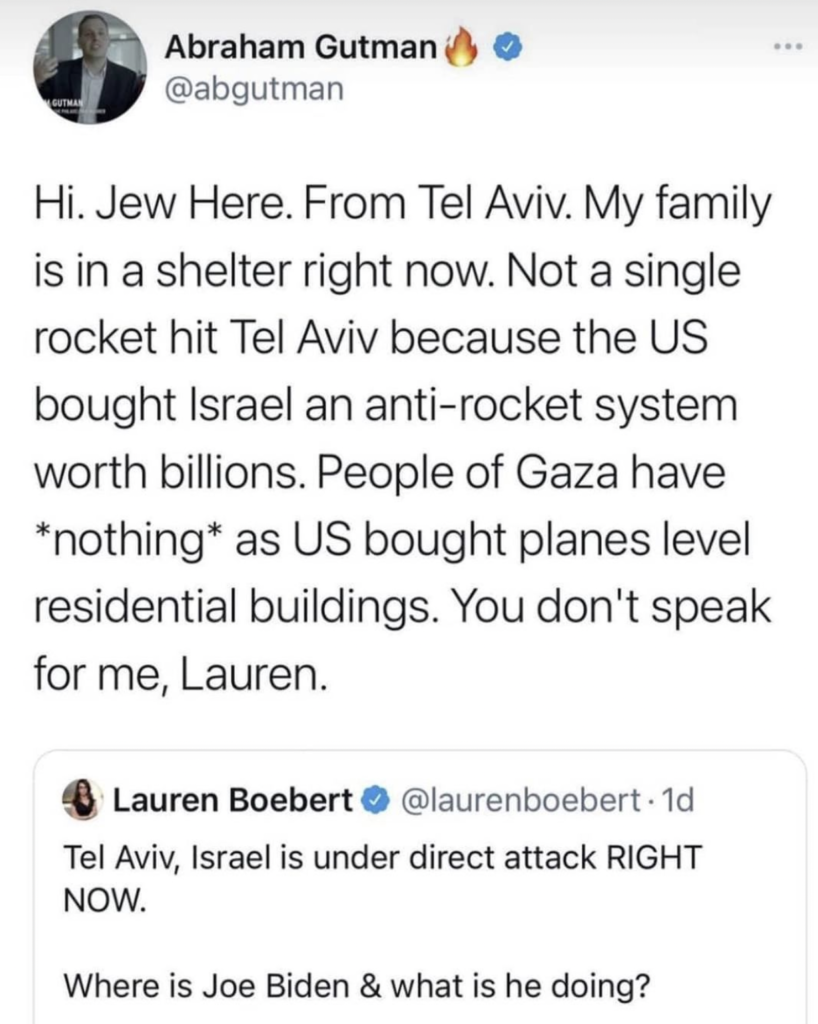
This does, however, highlight one of the reasons the conflict has become so controversial. Anti-Semitic people have been very happy to get behind the Palestinian cause because it serves their own purposes. But that does not mean that the cause itself is anti-Semitic – Zionism and Judaism can absolutely be separated and should not be treated interchangeably.
In the past, however, people who have criticised the Israeli government’s Zionist practices (NOT the Jewish faith) have been labelled by the Zionist movement as anti-Semitic. This is a tactic to keep people silent: It makes it hard for people to understand the difference and makes them afraid to speak out on the issue for fear of being labelled an anti-Semite. But the human rights abuses being committed by the Israeli government have nothing to do with the Jewish religion.
On the flip side, you don’t have to be Muslim to support the Palestinians – taking a stand against human suffering has nothing to do with religion. Changing the narrative around this is hugely important.
So why does the internet care all of a sudden?
What’s been absolutely clear over the last week is that the Palestinian struggle is getting more attention online that it ever has before. The videos posted from Sheikh Jarrah have been shared by high profile figures and celebrities, and human rights focused social media accounts have sprung into action providing resources, reading lists, and explainer posts educating people about the history of the conflict and the oppression of the Palestinian people.
Palestinians have also found common cause online from supporters of the Black Lives Matter movement, who have posted publicly about the need to fight discrimination everywhere, and not just in a particular country.
Ironically, attempts by platforms like Instagram to suppress the story have likely made it spread even further. Many people posting about Palestine on social media have had their posts deleted or found that they’re getting unusually low levels of engagement on posts relating to Palestine. But this hasn’t stopped a handful of influential posts going viral online.
How can I learn more?
If the last year has made one thing clear, it’s that we can no longer stay silent on issues of injustice – wherever in the world they may be. Choosing not to engage because they do not affect us is the definition of privilege, and one of the most important things we can do is to educate ourselves and not be afraid to ask hard questions. If you want to learn more about Israel-Palestine and the Palestinian struggle, check out the following:
Resources:
- Vox – Everything you need to know about Israel-Palestine
- Pink Jinn – Reading List: 13 essential books to help you understand Palestine
- so you want to talk about… – What You Can Do To Support Palestinians
Accounts to follow:
- Subhi Taha @itsmesubhi – Palestinian influencer posting explainer videos
- Mohammed Elkurd @mohammedelkurd – Writer from Jerusalem sharing live footage from Sheikh Jarrah
- Lara @gazangirl – International Lawyer and Activist posting updates and information about Gaza
- Institute for Middle East Understanding @imeu – posting educational content about the situation on the ground and the history of Israel-Palestine

